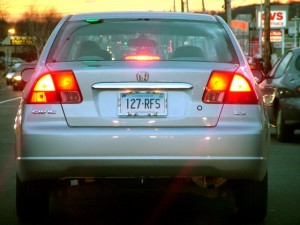Automatic License Plate Readers, or ALPRs, are controversial surveillance devices that can scan countless license plates and store the information. We usually assume city governments and law enforcement departments would be the ones with access to these devices, but in Texas, a private company is utilizing ALPRs in order to revolutionize the repossession industry and capture 1.8 Billion license plate images, and counting. Not only that, but this private company has no intention on deleting these images…ever.
Digital Recognition Network (DRN), based out of Fort Worth, has accumulated a network of over one thousand ALPRs across the country over the last six years. Based on this, according to CBS, “Chances are better than 50-50 that (DRN) at some point has taken a picture of your vehicle’s license plate. The odds increase to nearly 100-percent if you live in a major city or have ever gone to a shopping mall, according to the company.”
“Our technology really replaces the eyeballs of those people hanging their heads out of the windows,” says DRN CEO Chris Metaxes. And he’s not lying — DRN’s devices can scan about 60 license plates a second! And seeing as most of these devices are mounted on tow trucks, safe to say, the company has captured quite a lot of plate numbers — 1.8 billion to be exact. In comparison, “among local police departments, the Grapevine Police Department has the largest database of license plate reads with 4.7 million records.” And while most departments clear their databases after a year or so, DRN has never deleted their records in six years.
Although some claim this is an invasion of privacy, DRN counters that by saying that they only collect plate numbers and not names. However, when a plate is scanned, the date, time and location are also recorded, and seeing as banks are known to pay lots of money for this information, it’s not too hard to add the extra step after-the-fact of associating names with the plate number.
One can’t help but think it’s a somewhat scary concept when private firms start using surveillance techniques that are used by the government and law enforcement. But until either federal or state laws start to restrict or prohibit this practice, there unfortunately is not much everyday citizens can do other than to continue to fight for our right to privacy.
